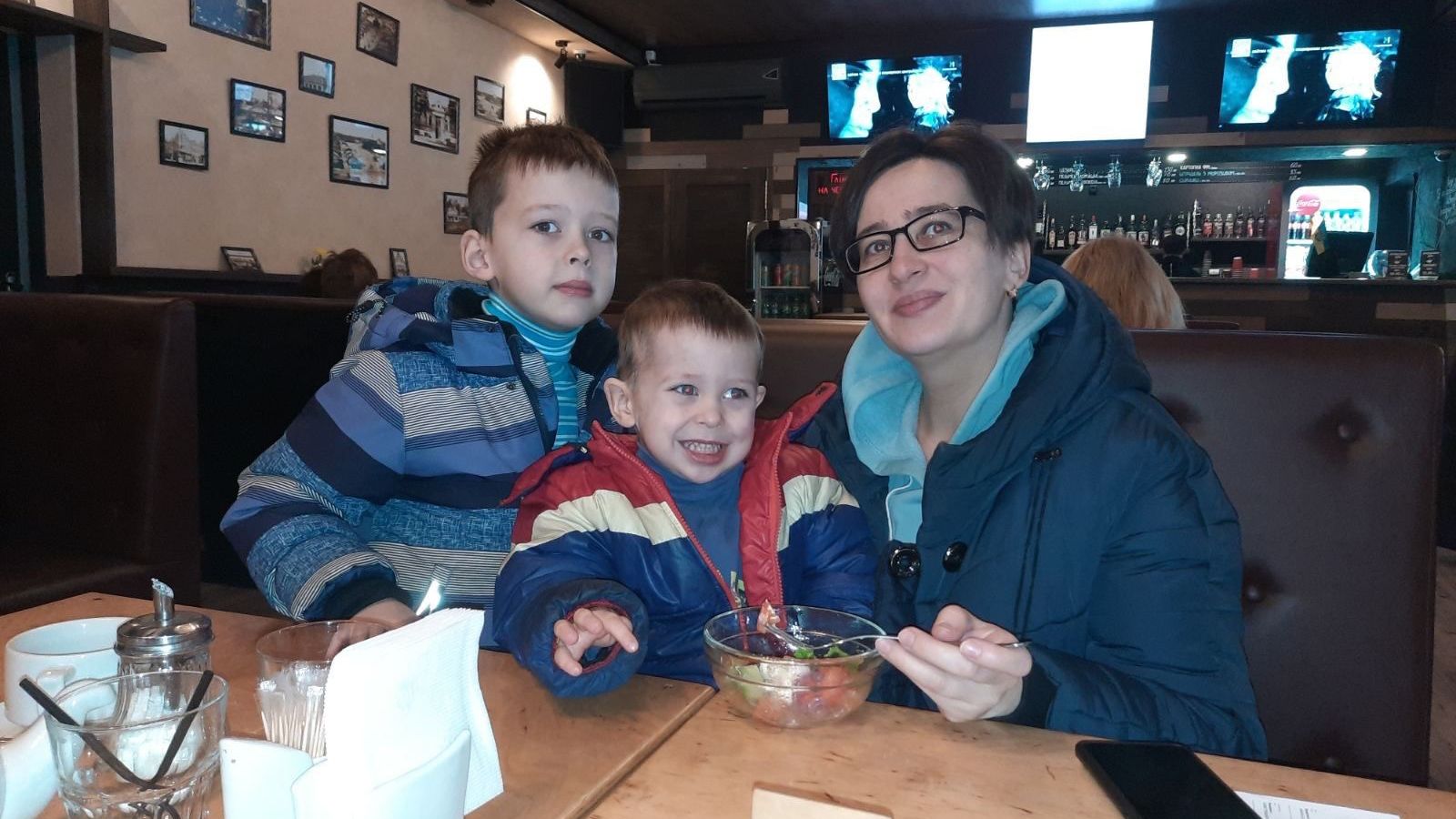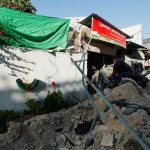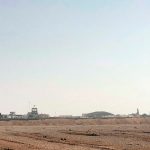In a country like Ukraine, where entire cities are being bludgeoned to the ground, the human ramifications are so vast that they often overwhelm the ability of journalists to describe them.
Instead, we rely on numbers – numbers, for example, from the United Nations Human Rights Monitoring Mission in Ukraine which reports that 10,582 civilians have been killed since Russia launched its full-scale attack.
We quote statistics from the Office of the President of Ukraine, which says 529 children have died as a result of the fighting since February 2022.
It was in the city of Kharkiv, however, that I was confronted by the consequences of this conflict in a way that was so raw and devastating that the meaning buried within these numbers was painfully revealed.
On 10 February, the Russians targeted a large fuel depot in the city, using three of their Iran-made ‘Shahed’ drones.
Their assault was successful – spectacularly so, with smoke and flames from the ruptured tanks billowing miles above the city. A million gallons of diesel and petrol poured into the surrounding streets, flowing like lava into a nearby residential neighbourhood.
The heat was so intense that firefighters struggled to approach the blaze. Some 4,000 square metres were incinerated, along with 15 homes in the city’s Nemyshlyansky district.
Middle East latest: Houthis vow to sink British ships; path to Gaza truce ‘straightforward’ as talks resume
A fresh truce between Israel and Hamas could be highly significant – in more ways than one
Anger as Pakistan’s parliament confirms Shehbaz Sharif as prime minister
When we first saw Tetiana Putiatina, she was standing outside the charred remains of 32 Kotelnia Street. She used to live here with her only son Hryhory (Gregory) and his family of five.
When I approached, I could tell that she had been crying.
“The children were asleep, there were three of them – seven years old, four years old and 10 months old. They just didn’t have time to get out, to gather the children,” she whispered.
Tetiana was visiting a relative on the night of the attack, leaving the rest of the family at home.
“By nine in the morning, I’d already returned, when they were recovering the bodies. They didn’t show them to me. They were so badly burned.”
Her son Hryhory was a builder and his wife Olna worked at the local prosecutor’s office. She told me the pair had spent much of the past two years trying to keep their three boys safe.
Their oldest child was Oleksii with Mykhaylo in the middle. Pavlo – or Pasha, as they called him – was the baby.
Their parents had taken them to western Ukraine at the beginning of the war when the Russian troops tried to break into Kharkiv but they had returned to the city after several months.
Tetiana said the family would rush to their underground shelter in the garden when the sound of the bombing got close.
On the night of 10 February, however, they had no time to escape, no chance to avoid a river of fire that was racing their way.
“They found my son here, this is where he lay,” said Tetiana, pointing to a spot on the floor in what remains of the corridor.
“It looks like he was looking for a way out. Here in the bathroom, that’s where she was, Olna was holding two of the children close to her chest. The middle boy (Mykhaylo) ran out to the kitchen. Probably, he was trying to reach his dad.”
Their funeral was held three days later and in a recording of the event, we see surviving family members trying to grapple with the catastrophe. The baby, Pasha, was buried with his mother and we see Tetiana wrapping her arms around their coffin as she sobs.
When these images were posted online, this 61-year-old grandmother was mocked by some who accused her of pretending to be upset. They are Russians, she said, seeking to deepen her wounds.
“When we were mourning at the cemetery, I held the coffin. There were comments, like, ‘what an actress’ and ‘she plays her role well’.”
She began to cry. “They say they are liberating us. Who are they liberating?
“I was born in the Belgorod region (of Russia) myself. Do they liberate me?
“And my in-laws, my parents-in-law, were all from Russia. We were all Russian-speaking.”
The fuel depot was still smoking when we visited the site and the roads surrounding it were thick with a black sticky residue. We saw workers trying to patch up the heating and water pipes – but there are things in Kharkiv that will never be repaired.
A security guard who works next to what is left of the fuel depot told us that it was like looking at a picture of hell.
“You know, the stench will linger for years – that smell is going to stay and it has affected the atmosphere here because there were huge clouds of smoke. It was terrible.”
The consequences of this attack will strike many as a depressing feature of Ukraine’s daily existence, another number in an endlessly rising statistical column. But there is nothing normal about this for Tetiana Putiatina.
The destruction of her house and the death of her loved ones have left her with nothing to live for.
“Of course, it’s hard. I come here every day, sometimes multiple times a day.
“I’ll come here, walk around the house, where they found their bodies.
“I’ll shout, I’ll cry, and then I’ll leave.”






















